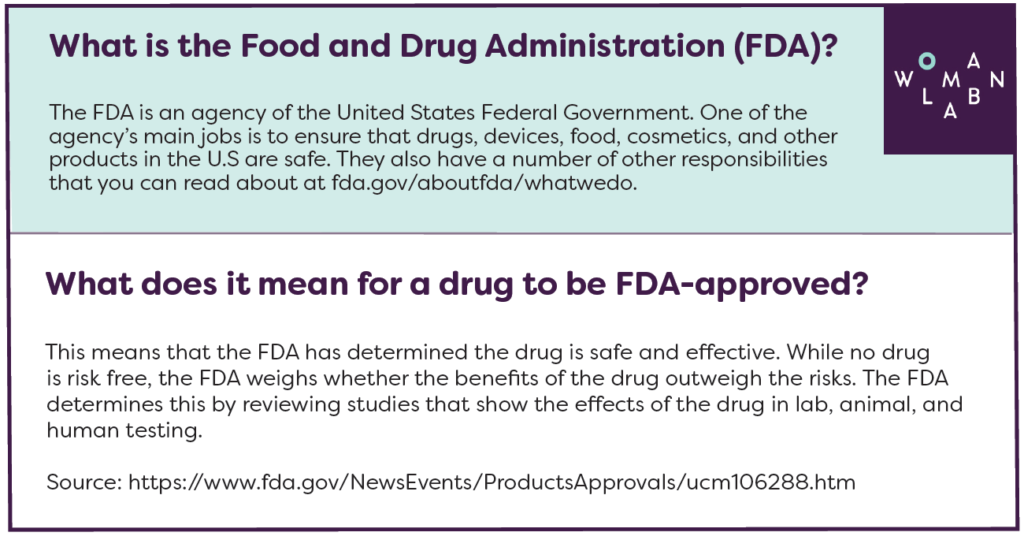At a social event recently, I met a woman who very confidently told me that she could not take hormone replacement therapy because she had a history of blood clots in her lungs, but that she was using a bioidentical hormonal therapy to treat her hot flashes. To her dismay, I shared that bioidentical hormones are just like traditional hormone therapy. They can be used to treat hot flashes and vaginal dryness and they carry the same risk as traditional hormone therapy, if not a greater risk. In the case of this patient, she should not have been using either.
I often ruffle a few feathers when I share the facts on bioidentical hormonal therapy. Many people associate bioidentical hormone therapy with “all natural” or “organic,” which for many translates to safe and no risks. It would be wonderful it that were true, but unfortunately it is NOT! While I am easily wooed by anything “natural” too, it is simply not the case that bioidentical hormones are safer than other kinds of medicine. In fact, they are potentially riskier for a few reasons that I will share.
So first, let’s break down exactly what “bioidentical hormone therapy” is. The term is broadly used to describe hormones that are identical on a molecular level to the hormones our ovaries naturally produce. The thing that attracts most people is that these hormones (estrogen, progesterone and sometimes testosterone) come from biological organisms, like plants, instead of being made in a lab. While there are FDA-approved bioidentical hormone medications, most often I see patients who are using versions of these drugs that are not approved by the FDA.

Many of my patients obtain their bioidentical hormone medications from “compounding pharmacies.” A compounding pharmacy is one that creates personalized medications to meet a specific patient’s needs. The drugs they make are not supervised or covered by FDA regulation. Drugs that aren’t FDA-approved haven’t had to undergo testing to show that the levels achieved in the body are safe and effective. The sellers of these drugs also do not have to confirm the amounts of the active ingredients included in the drug. From my perspective as a doctor, since there is a toxic level to everything (even vitamins and herbal supplements), not knowing how much of a drug is ending up in the body is a real safety concern.
Another reason my patients use bioidentical hormones from compounding pharmacies is because the sellers of these products claim that the products are “customizable.” Meaning, compounding pharmacies and providers who prescribe these drugs will sometimes test a woman’s hormone levels to try and match the treatment prescribed to the woman’s lab results. Some people see this feature as an extra benefit, but it is unnecessary (yes, this evokes a few eye rolls too – the truth often hurts). Hormone levels in the blood and saliva fluctuate vastly on a daily or even hourly basis. In addition, hormone levels do not always correlate with symptoms. For example, a woman can have terribly bothersome menopausal symptoms and her hormone levels may be borderline low, while another woman could have extremely low hormone levels, but no perceptible symptoms. These lab tests don’t have any relevance to treatment and can be expensive
Compounding pharmacies also make bioidentical hormone therapies that imitate testosterone. Although controversial, testosterone has been used to improve decreased libido and orgasm problems in some women. In men, testosterone is thought to, among other things, regulate libido. But while testosterone is approved by the FDA for use in men who have low testosterone due to a medical condition, it has not been approved for use in women (I know, one of the many inequities in life). Prescribing or taking these medications is not supported by the American College of Obstetricians & Gynecologists (ACOG) or the North American Menopause Society (NAMS).
Before anyone writes me an angry email, I am not saying that bioidentical hormones from compounding pharmacies don’t work. Actually most patients say they do. And for those with limited insurance coverage for hormonal therapy, the compounding pharmacies may be more cost efficient. My point is this: whether hormone replacement is “bioidentical” or “synthetic,” it comes with the same range of risks (I discuss these risks in my blog on hormone replacement therapy). These risks might be even greater in drugs that are not FDA-approved, because they are not held to the same safety standards.
I get it, the symptoms of peri-menopause and menopause truly “suck” for some women. If you are someone who thought bioidentical hormone therapy was your magic potion, this is not a reason to be deflated or hopeless. Hormone therapy, whether bioidentical or synthetic, often provides relief of bothersome menopausal symptoms. Hormone replacement therapy is an effective and safe option for most women, but, it is very important to recognize the associated risks. For some women, like the woman I met, hormone replacement therapy of any type is not recommended. Fortunately for her and others, there are non-hormonal treatment options that I will share in the next blog. Stay tuned ladies…
Do you have questions for me about treatments for menopause? Write us at info@womanlab.org or on Facebook or Twitter with your questions.
Edited by Leilani Douglas
Photo by Holger Link on Unsplash